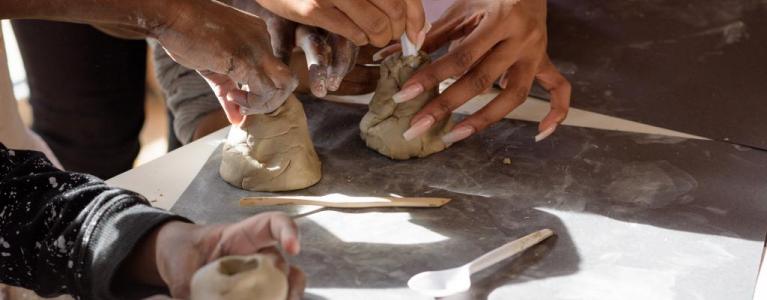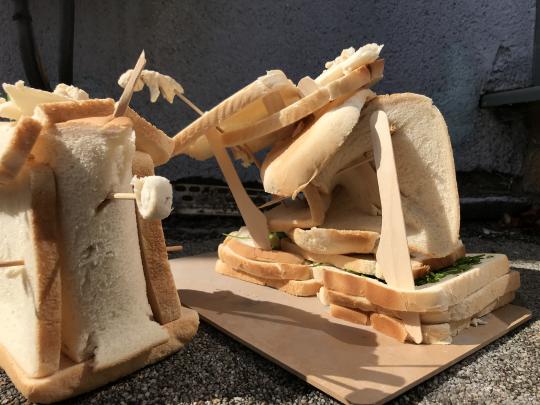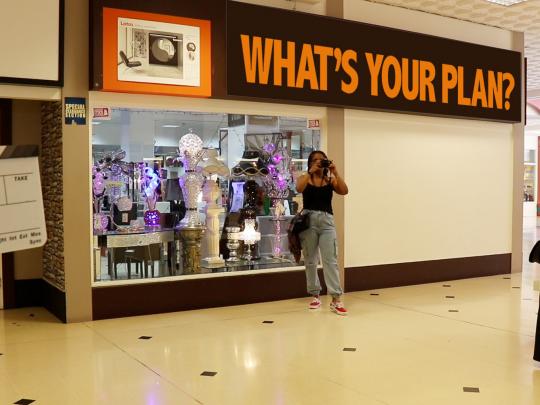
How can those at the sharp end of social care – including young people seeking asylum and looked after children - experience art and culture in a way that brings about positive change in their lives?
How can new relationships be forged between practitioners from different sectors to take risks in the workplace and productively challenge norms?
These are the kinds of questions informing New Town Culture – a pioneering programme by the London Borough of Barking and Dagenham that aims to embed art and cultural practice into the world of social care.
Piloted thanks to a Cultural Impact Award as part of London Borough of Culture, the project is now expanding its scope with further support from the Mayor’s Young Londoners Fund and the Violence Reduction Unit.
We hear from Marijke Steedman, New Town Culture Curator, about this brilliantly ambitious project.
Where did the idea for New Town Culture come from?
Firstly, we were keen to reach our residents who are unable or unwilling to access mainstream cultural engagement such as festivals, exhibitions, and events. By embedding arts and culture in core public services, we are hoping to address their needs.
Secondly, we wanted to bring creative and cultural practices into the heart of social care services. Our ambition here being to support social workers and carers to try out new ways of working to enhance the brilliant work they already do.
Finally, we could see there weren’t many opportunities for creative practitioners to connect their work directly with pressing social agendas and work alongside experts in fields such as social care. We wanted to give artists a chance for their work to be a platform for change.

Bird Bread Houses by looked after children in a workshop led by Gayle Chong Kwan.
How is the programme disrupting norms?
One of the processes we are exploring is the notion of ‘hopeful disruption’ where we look at how we all deliberately take risks in our working lives and ask if this helps develop new and better ways of working. So, for example, we have been exploring the idea of ‘radical hospitality’ which came from a project with the artist Albert Potrony and young women who have experienced exploitation.
Hospitality is not a word we associate with social care services but thinking about how we build relationships might have huge benefits to the work. This might involve allowing service users to lead on where meetings happen, trying out new terms of engagement like staff painting together alongside a young person, or agreeing to eat cake in a case conference.
What have you learnt so far?
-
Bringing together different sectors, services and organisations requires conversation, listening and compromise. Movement needs to take place, and this really can only happen through exposure to new ideas through conversation.
-
Do not assume that making the case at the top of hierarchies will create the change. Everyone needs to be engaged so that people feel empowered to take risks and experiment.
-
Respect expertise and realise it will come from everyone, at all levels. Creativity is happening in day to day social work all the time in discrete ways and it is important to support this and develop it.
What’s next for New Town Culture?
We have just launched a Creative Social Work course developed with Goldsmiths, University of London. Colleagues from cultural organisations will teach it alongside academics and social care practitioners – the first course is completely booked up by Barking and Dagenham staff which is fantastic. Radio Ballads – our series of artist residencies and commissions, developed in partnership with the Serpentine Galleries - is really gaining momentum with the four artist commissions to be presented next summer.
We have Helen Cammock working with youth offending service staff to explore how we use our voices and bodies to find resistance and resilience in everyday lives. Rory Pilgrim is developing the Rafts project with adult residents and Green Shoes Arts; Sonia Boyce is building connections between adult social care staff and our local Domestic Abuse Commission and Ilona Sagar is exploring the untold legacies of industrial work in collaboration with the London Asbestos Support Awareness Group.
And there is much more to come next year, including twenty new creative projects with young people and a mentoring programme for young people in care, edge of care or at risk of exclusion from formal education.

What’s Your Plan? project with care leavers and Paul Crook. Photo by Paul Crook.